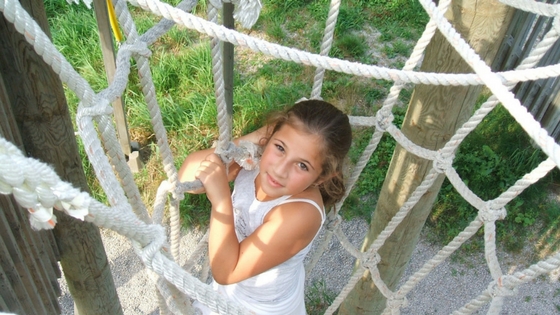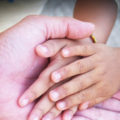All children worry at some point. But when does a typical worry turn into possible anxiety? Does your child cling to you at events? Do they refuse to go to school? Are they experiencing an increase in stomach and headaches? Are these things making you worried that your child may have anxiety?
Signs of anxiety in kids
For some children it may not be obvious that they have anxiety. It is not as if they wake up one morning and their whole personality has changed. Some children do not like talking about their worries with an adult. It can be gradual, and they may only experience a few symptoms.

Some signs that your child is experiencing anxiety may include:
- Increased irritability
- Outbursts of anger
- Over-reacting
- Withdrawing from others
- Frequently crying
- Difficulty sleeping
- Drop in school grades
- Refusing to go to school
- Refusing to speak (mutism)
- Clinging to one parent in social settings
- Spending numerous hours doing homework to perfection
Complaints of headaches and/or stomach aches
Don’t all children experience some of these at some point in their life?
Yes, at some point children may become a little more withdrawn, their grades may dip or even have trouble sleeping. However, when your child experiences these symptoms more frequently, for longer durations and with more intensity than their peers, it is likely they may have anxiety.
What causes anxiety?
It is not always easy to determine the root cause of your child’s anxiety. Some anxious children are the result of:
- Brain chemistry
- Having a family member who is also anxious
- Being exposed to a traumatic event
Anxiety can cause considerable difficulty in your child’s life
Children who constantly worry may feel hostage by their fears—and so do their parents. As a result, they often avoid those things that frighten them, and feel like they have no control or the ability to face those frightening situations. When anxiety strikes, you will notice a difference in your child’s behaviour, mood and even eating or seeping patterns. According to Social Worker, Wendy Hofmann, “In clinical practice anxiety-related referrals make up 80% of our requests for help. So, we know it’s a problem. However, the good news is, it’s one of the most treatable mental health conditions.”
What doesn’t work when dealing with a child’s anxiety?
Simply hoping that anxiety will go away is not a realistic option. When left untreated, it is likely that your child’s anxiety will increase.
It can be frustrating for a parent who has a child with anxiety. Some parents feel especially if they don’t understand why they are worrying over certain things (e.g., going to a new restaurant or being invited for a play date). Getting mad at them or telling them to stop worrying is also not effective in reducing their fears.

How to help children with anxiety
If you suspect that your child has issues around anxiety, immediately pursue the support of a professional. Seek a therapist who offers Cognitive Behaviour Therapy and as parents, it’s critical to understand what and how anxiety works. Gaining knowledge increases one’s awareness of how your child may be experiencing their symptoms. This is key in effectively treating anxiety!
It is also important to get in contact with your child’s school personnel and update them on your concerns. They may have some local resources to support you and your child. A child’s home is a critical component in managing anxiety. Ensure your child is seeing a trained therapist and that you are also consistently supporting your child.

Activities to do with your child
- Read books on anxiety (What to Do When You Worry Too Much by Dawn Huebner, Ph.D.)
- Practice deep breathing
- Help your child contain the worry. For example, create a worry box and schedule a time to discuss the worry with your child.
- Use technology (e.g. Mindshift app)
- Teach your child the power of reframing their thoughts and to try to use positive thinking
- Encourage daily physical activities
- Reward your child’s accomplishments, like facing their fears
- Create coping cards for your child to use in various situations
- Children learn from our behaviours. Model healthy ways to manage your own worries and be patient with the process.
References
- https://www.anxietycanada.com/
- https://kidshealth.org/en/parents/anxiety-disorders.html
A special thank-you to Wendy Hofmann, MSW, RSW from Hofmann & Isaac Individual and Family Counselling (www.hofmannandisaac.ca) for her contributions to this article.




